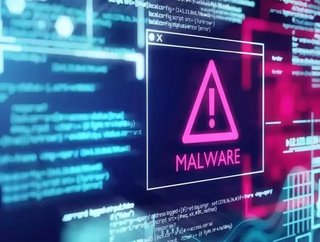COVID-19: the rise of cyber threats and how to combat them

Business Chief USA, takes a look at the ways in which organisations can combat the rise of cyber threats during a pandemic, according to Verizon.
Reflecting on the global situation with the coronavirus continuing to spread, Verizon contemplates on something American businessman and philanthropist John Rockefeller once said, “I always tried to turn every disaster into an opportunity,” an approach the organisation is seeing a rise in criminals.
In a recent report from Recorded Future, it has been confirmed that thousands of fake coronavirus-related websites have been registered to phish for information or infect computer networks with malware. Amidst the global outbreak these criminals are relying on organisations clicking on coronavirus related links without thinking, which is exacerbated by vast amounts of people now working from home.
It has been reported by the Federal Trade Commission that there has been an increase in spoofed emails, text messages and phone calls claiming to be from the Centers for Disease Control (CDC). The websites offer a ‘cure’ for the virus, with remedies, vaccines and testing kits.
Criminals are also attempting to impersonate WHO representatives, in order to conduct a variety of scams including account takeovers to phoney donation requests and spreading malware.
Phishing has been a popular technique for attackers even before the spread of COVID-19. Though attempting to phish steal your credentials and obtain sensitive information, frequently via emails which contain fake web links. “In 2019, nearly a third of all breaches involved a phishing attack, making it the top threat action used in successful breaches,” according to Verizon's 2019 Data Breach Investigations Report (DBIR).
SEE ALSO:
How to avoid potential threats
In order to avoid any potential threats, Verizon recommends deleting any coronavirus related emails that come in from any domains and do not click on any attachments.
In addition be cautious of donation websites, or sites offering medical advice, supplies or financial market advice. Ultimately, do not take the bait and click onto sites you do not know.
If an email is an important message or urgent matter from organisations such as your bank or hospital, make sure to respond via official channels rather than directly to the email.
Verizon also stresses the importance of keeping your system security up to date and encrypted, as well as password protecting sensitive information. Those working from home should ensure your VPN contains two factor authentication to secure your network connection.
Verizon continues to monitor developments related to the Coronavirus outbreak, which can be found on the Verizon website.
The organisation also maintains its commitments to “ensuring our customers have access to the most reliable networks and global solutions—now and in the days and weeks to come. As the situation evolves, we’re working closely with our employees, partners and suppliers to support ongoing business operations and serve our customers’ needs.”
For more information on business topics in the United States, please take a look at the latest edition of Business Chief USA.
- SolarWinds 101 – CEO profile, cyber hack, new AI & ML SaaSLeadership & Strategy
- Cyber risks increase as hybrid staff head for vacationsLeadership & Strategy
- Citi joins Google, Mayo Clinic in sacking unvaccinated staffLeadership & Strategy
- COVID-19: drives Canadian businesses to adopt more cloudTechnology & AI






